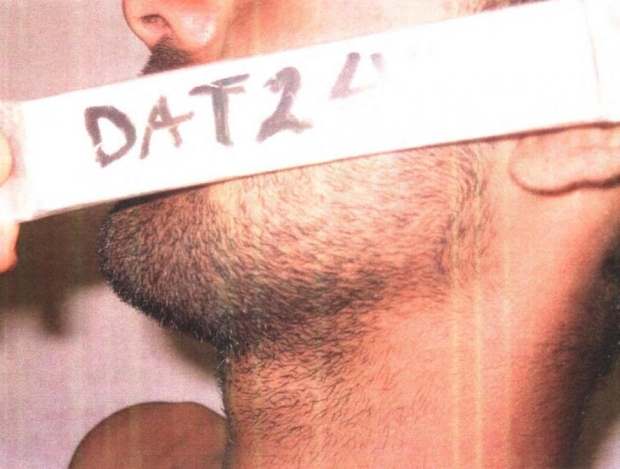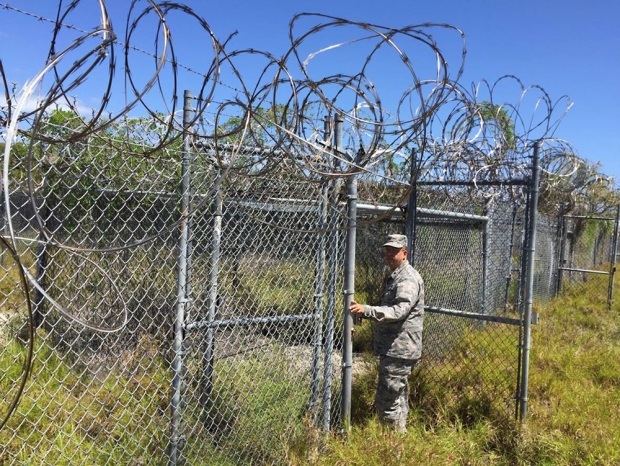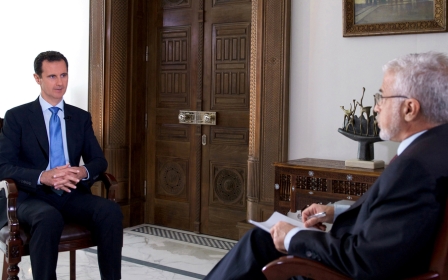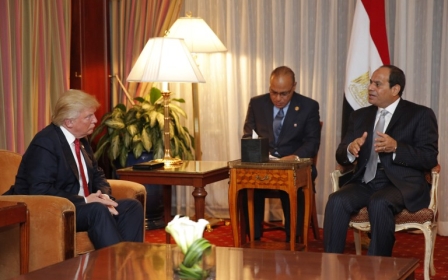For a glimpse of Trump’s future torture regime – look how America abused this pregnant woman
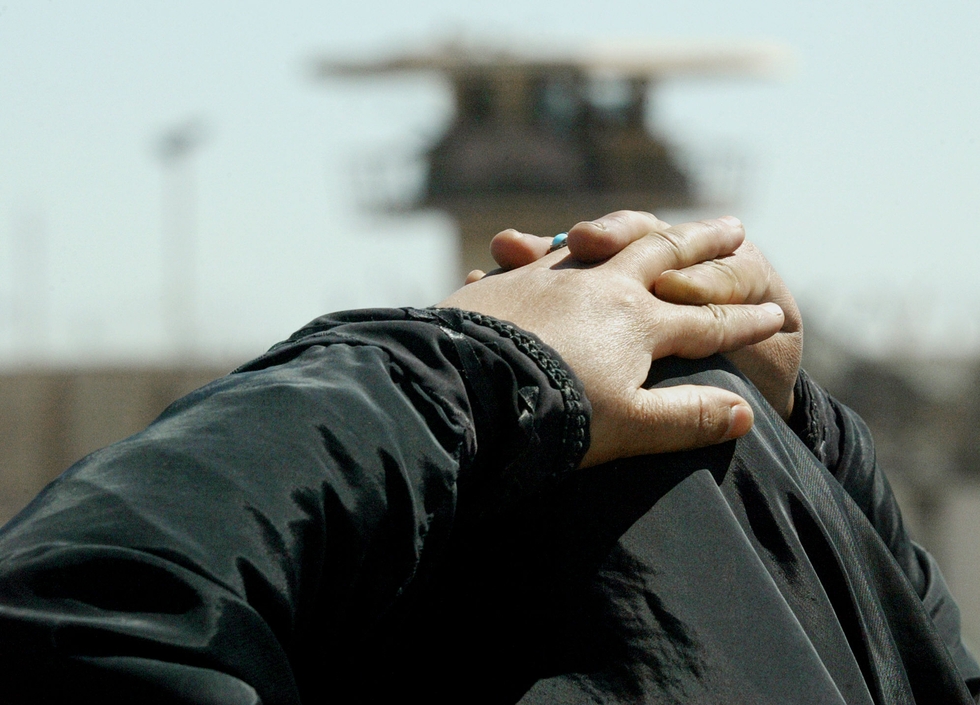
“Don't tell me it doesn't work - torture works. Okay, folks? Torture - you know, half these guys [say]: 'Torture doesn't work.' Believe me, it works. Okay?” The words of the President-Elect.
Let’s review the campaign pledges. Donald Trump promised to refill the cells of Guantanamo with “bad dudes”. He vowed to bring back waterboarding, and “a hell of a lot worse”, because “torture works, and even if it doesn’t work, they deserve it.” He promised not just to kill “terrorists”, but to murder their families.
Around the world, and in Muslim neighbourhoods in America, Muslim families will be asking the same questions. Will we be all right? Is my family safe?
Will he really do it? Can he?
For a glimpse of the future of American torture, it behooves us to revisit the recent past, when the CIA and its foreign partners abducted and abused a pregnant woman.
Her name is Fatima Boudchar. She was innocent of any crime, but was married to a Libyan dissident who opposed the Gaddafi regime. Abdul-Hakim Belhaj never aimed to tussle with the West - his sole enemy was Libya’s “mad dog” dictator - but the rendition squad came for him anyway. Why? After 9/11 America’s tune on Gaddafi changed; in exchange for his promise to dismantle various weapons, we abducted Belhaj and his wife and delivered them to Libya’s dictator as a gift.
No mercy
Fatima was heavily pregnant at the time. This earned her no mercy. The CIA still ran her through a sampler of America’s “enhanced interrogation techniques” (in the Gestapo’s identical phrase, verschärfte vernehmungsmethoden): sleep deprivation, sensory manipulation, physical abuse, abject humiliation. And the CIA was just Gaddafi’s warm-up act. They trussed Fatima and her husband up with the care typically lavished on factory farm livestock, and shipped them to Gaddafi’s dungeons.
For five years I have represented this family in the slow grind of torture litigation. 24 hours after Trump’s election, I sat with Fatima and discussed whether it was all about to happen again
This was kidnapping. Fatima, a citizen of Morocco, had never set foot in Libya until we flew her there. Thanks to us, she did give birth to her first child in Libya; at delivery, her baby weighed four pounds.
For five years I have represented this family in the slow grind of torture litigation. Twenty-four hours after Donald Trump’s election, I sat with Fatima, and discussed whether it was all about to happen again.
Around the world, and in Muslim neighbourhoods in America, Muslim families will be asking the same questions. Will we be all right? Is my family safe?
The answer, I fear, is no - not unless we defend them.
Is it all an empty boast? Some have tried to draw comfort from Trump’s isolationist rhetoric, hoping that he might stand Muslim nations in better stead than a warlike President Clinton. But the “war on terror” is not a conventional armed conflict. It favours deniable, “light footprint” activities that the law has rarely constrained, Congress has scarcely overseen, and for which support among the Trump-voting base is strong. All that Trump needs to purchase political will for more of the same is to label the target population “terrorists”.
Who can stop him?
Second, will anyone in government stop him? Before the election, top securocrats played a game of rhetorical Twister, insisting that the original torture programme was legal and saved lives but that the CIA and military would refuse orders to do it again. On what basis do they purport to flout orders they have always said were lawful?
Now that the national security apparatus is in the hands of a madman, the Beltway is horrified.
Now that the national security apparatus is in the hands of a madman, the Beltway is horrified. Reports abound that officials are refusing to serve. This is a welcome expression of solidarity. Perhaps internal opposition will hold fast. But I doubt it. Trump is assembling an all-star cast for the remake: if you liked Cheney, Addington, Gonzales and Yoo, you’ll love Bannon, Flynn, Giuliani, and Gaffney.
Many of the very Americans involved in abductions like Fatima’s remain in the deep state. José Rodriguez (who destroyed the waterboarding tapes) is giving interviews arguing for a return to torture. Doubtless some traditional national-security figures will stand clear. But on the night, there is a risk that others will fall in line, just as they did then.
Complicity
Could foreign governments stop him? It depends. Last time it took the complicity of American allies to pull rendition off. (MI6 was a crucial partner in Fatima’s abduction.) Officials who colluded with Bush-era torture in Europe have come in for a tough legal time. Trump may find he has to go to another well. But despots like Egypt’s Sisi may prove all too happy to house America’s secret prisoners to ensure a continuing flow of American cash.
By calling torture what it is, Trump has opened a window for pesky lawyers to wreak havoc on his plans.
What are the implications of a new torture programme? For those who wonder what “worse than waterboarding” means, recent history is again your guide. Last time we put prisoners in “confinement boxes” - coffins. We held a power drill to a man’s head. We put a near-naked man on a freezing cell floor and left him there until he died. We raped prisoners with their food - one so severely that he required surgery for a permanently prolapsed rectum.
Could the law stop him? It’s hard to say. Yes, by calling torture what it is, Trump has opened a window for pesky lawyers to wreak havoc on his plans. Torture is a federal offense and a crime of universal jurisdiction. Later statutes now stand in Trump’s way (though their eventual fate in the next Congress seems at best uncertain.) The last torture cohort has gotten away with it (so far). Fifteen years after 9/11, legal institutions are likelier to have a sense of humour failure.
But the law is a cautious, sluggish beast. For a time, Trump can expect a free hand. If he wants to revive secret detention - never found unlawful per se - he can. If he decides to encourage prisoner abuse – in any of the thousand ways to torment a captive that no judge ever ruled out - he can.
Impunity for torture
What could we have done to avoid a reprise of cases like Fatima’s? For one, we might have done more about the torture we recently carried out. Most Democrats took Obama’s cue to “look forward” from individual responsibility for torture - to shun prosecutions. Even the Senate’s excoriating torture report shielded favoured personnel (eg Stephen Kappes, a key player in Fatima’s rendition) from censure. Those on the right cheered the expansions of executive power under Bush and Obama and never favoured legal sanction for torture. This impunity has set the stage for a repeat.
It is past time to take Trump at his word. Obama never took rendition off the table. Gitmo is open. We are one attack away from a state of emergency and a backsliding on torture. Shortly, we may have to grapple with a full re-run of early-Bush “national security” abuses - open season on Muslims, foreign and domestic.
Some of the people we tortured were suspected of terrorism. Not all were. To the sadistic response that our prior victims “deserved” it, I say: tell me what Fatima deserved. And to apprehensive members of the military and intelligence communities, we are with you. You will shortly be asked to do terrible things. It will take immense courage to resist. In this, Americans of good will stand with you.
But for those who grumble and go along and “just follow orders”: prepare yourselves for a fight.
- Cori Crider directed the Abuses in Counter-Terrorism team at the NGO Reprieve from 2009-16. As a lawyer she has represented Guantánamo prisoners, victims of "extraordinary rendition," and survivors of drone attacks. She still represents the Belhaj family, and writes as a freelance journalist on the excesses of the national security state. Her writing appears in the Guardian, Reuters, Al Jazeera, the Independent, CNN, Newsweek, and the New York Daily News.
The views expressed in this article belong to the author and do not necessarily reflect the editorial policy of Middle East Eye.
Photo: An Iraqi woman rests her hands on her head as she waits outside the Abu Ghraib jail, 30 kms west of Baghdad, 23 May 2004, in hope of getting information about a relative held by US forces (AFP)
New MEE newsletter: Jerusalem Dispatch
Sign up to get the latest insights and analysis on Israel-Palestine, alongside Turkey Unpacked and other MEE newsletters
Middle East Eye delivers independent and unrivalled coverage and analysis of the Middle East, North Africa and beyond. To learn more about republishing this content and the associated fees, please fill out this form. More about MEE can be found here.



